

Tourism: China will show the way on climate resilient
“The Paris clock keeps ticking and we need bold imaginative actions to respond” Professor Geoffrey Lipman said in his keynote remarks. “The China Summer Tourism Program exactly meets that need, encouraging travel to areas like Jilin, where climate extremes are less intensive and where local populations will benefit from the economic uplift. At the same time, focusing on best practice solutions to the greening of transport, hospitality and especially the visitor food chain.”
Lipman said that this kind of action is in stark contrast to the Trump Administration’s attack on the multilaterally agreed Paris framework, which he called “Declaring war on our Grandkids – which we must resist” He said that scientists suggest that on current performance, we are heading to a 3 degree increase in pre-industrial global temperatures, in contrast to the Paris base of 2 degrees.
He added that “Travel & Tourism is behind the response curve, with some subsectors, like aviation needing major shifts to bring their carbon footprint into line – we need to face up to the stark realities of Climate Change and begin adaptation now.”
On a positive note he referenced a recent Club of Rome Report “Come On”, which said that with collaboration, commitment and full use of new technology we could still meet the Paris optimism scenario.
Lipman outlined the SUNx Program – a legacy to Maurice Strong, Sustainable Development pioneer and champion of China’s leadership in this area – to place a cloud connected Climate Resilience learning and innovation Centre in every country by 2030, with 100,000 climate activists to advance innovative solutions. Travel & Tourism is a pivotal part of the human development agenda, and it is essential that we play a leadership role in the transformation to a new climate resilient economy.
Concluding, he called for a paradigm shift in tourism systems, through Impact-Travel ~ measured to manage: green to grow:2050 proof to innovate. Lipman said that “For our sector to play its full part in the transformation, we must act now. Tomorrow will be too late.”.
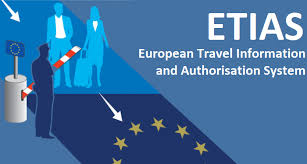
WTTC congratulates the EU on the adoption of the new European Travel Information and Authorisation System (ETIAS)
EU on the adoption of the new European Travel Information and Authorization System (ETIAS), a pre-authorization system which allows the EU to know who is entering the EU, from where and if they pose a risk to EU security.
When ETIAS comes into operation, all visa-exempt third-country nationals who plan to travel to the Schengen area will have to apply for pre-travel authorization. The aim of this is to ease travel to the EU and simplify border checks.
During negotiations, WTTC stressed the importance of the process to be made as easy as possible for legitimate travelers.
In addition to the ease of process, WTTC also advocated for the fees to remain at a reasonable level, one that did not discourage travelers from coming to Europe. The final fee of seven euros meets this balance.
“We see this as an important first step in the digitalization of travel. The ultimate aim will be the use of biometric technology to ensure seamless, more efficient and more secure travel. WTTC is committed to enhancing security and improving the entire passenger journey. This will essentially maximize the potential of the Travel & Tourism to create jobs and drive economic growth,’ stated Gloria Guevara, President & CEO World Travel & Tourism Council.
ETIAS will be free for under 18s and over 70s.
Applying for ETIAS aims to be quick and simple, requiring no more than a travel document, credit card and access to internet. A vast majority of applicants will receive a positive reply within minutes. If additional information, documentation or an interview would be needed, different possibilities will be offered taking into account the situation of the traveler.
WTTC welcomes the fact that the needs of the travel and tourism community were taken into account whilst ensuring enhanced EU security.
The new system was adopted today (Thursday, 5th July) at the European Parliament Plenary in Strasbourg and is expected to come into operation in 2021.

Fiona Jeffrey OBE new Chair of ATTA
Fiona Jeffery OBE has been appointed new Chair of the African Travel & Tourism Association (Atta), succeeding former chair Julian Edmunds.
Fiona has served on the Atta board for four years as Industry Relations Director, and has had a long and accomplished career in the travel and tourism industry. Responsible for World Travel Market (WTM) from 1986-2013, both as Managing Director and ultimately as Chairman, Fiona brings a wide breadth of knowledge to the role across all aspects of the industry, from government, national tourist boards and destinations to private sector and international trade bodies and organisations.
Founder of international water development charity Just a Drop, Fiona’s work has taken her to destinations across Africa undertaking projects to provide clean water and sanitation to remote communities. She also created and launched World Responsible Tourism Day, a responsible tourism drive across the industry globally, in association with the UN World Tourism Organization (UNWTO).
In 2012, Fiona was awarded an OBE by Her Majesty the Queen for services to travel and tourism, and in 2013 received the TTG Contribution to Industry Award.
Commenting on her appointment, Fiona Jeffery OBE said; “Being selected as the new chair of Atta is an unexpected honour I do not take lightly. My predecessors have all done amazing jobs, and my role is to build on their success. With new opportunities emerging all the time, Atta will seek to embrace these, putting the interests of our membership at its heart.
“My love of Africa began on honeymoon with my husband Nigel, exploring Kenya by four-wheel drive vehicle, and I am keen to tackle the issues and opportunities of the industry across the continent. These include sustainability, the dangers of overtourism, wildlife conservation and wider issues around poaching, gender equality and the opportunities of tourism to support socio-economic empowerment and development. It will be important to play our part supporting and furthering the agenda in many of these areas to ensure joined up thinking and increased impact across our industry.”
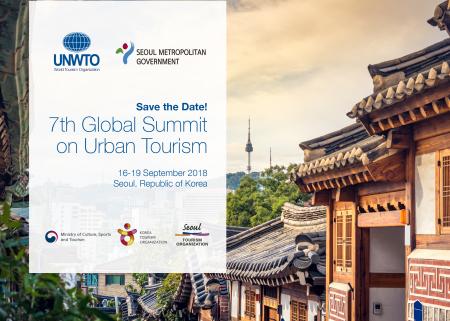
Seoul to host 7th UNWTO Global Summit on Urban Tourism
The UNWTO Secretariat announced that the 7th UNWTO Global Summit on Urban Tourism, will be held on 16-19 September in Seoul, Republic of Korea, under the theme ‘A 2030 Vision for Urban Tourism’.
The summit, co-organized by the World Tourism Organization (UNWTO) and the Seoul Metropolitan Government and supported by the Ministry of Culture, Sports and Tourism of the Republic of Korea, the Korea Tourism Organization and the Seoul Tourism Organization, will provide a unique platform to discuss the key issues shaping the future of urban tourism in the context of the 2030 Urban Agenda.
A ‘2030 vision’ for urban tourism requires a new thinking that considers the needs and expectations of the new customer and promotes inclusive economic and social growth by engaging and empowering local citizens. This vision must also address the impact of the technological revolution on consumer behavior, as well as on the economic, social and spatial structures, modes of transport, new business models and governance of urban tourism.
The 7th UNWTO Global Summit taking place in Seoul will bring together high-level representatives from National Tourism Administrations, city authorities and related stakeholders, serving as a platform to exchange experiences and expertise and set a shared vision on urban tourism that embraces innovation, digital transformation and sustainability.
The World Tourism Organization (UNWTO) is the United Nations agency responsible for the promotion of responsible, sustainable and universally accessible tourism. It is the leading international organization in the field of tourism, which promotes tourism as a driver of economic growth, inclusive development and environmental sustainability and offers leadership and support to the sector in advancing knowledge and tourism policies worldwide. It serves as a global forum for tourism policy issues and a practical source of tourism knowledge. It encourages the implementation of the Global Code of Ethics for Tourism[1] to maximize the contribution of tourism to socio-economic development, while minimizing its possible negative impacts, and is committed to promoting tourism as an instrument in achieving the United Nations Sustainable Development Goals (SDGs), geared towards eliminating poverty and fostering sustainable development and peace worldwide.
UNWTO’s membership includes 156 countries, 6 territories and over 500 affiliate members representing the private sector, educational institutions, tourism associations and local tourism authorities. Its headquarters are located in Madrid.
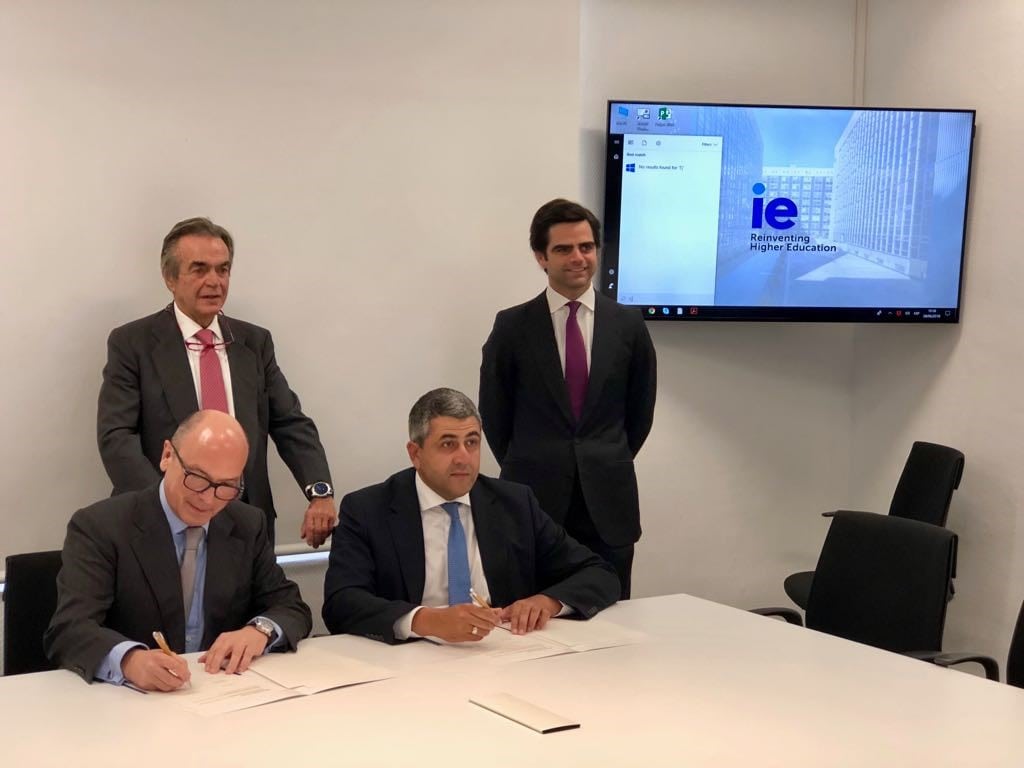
UNWTO and IE Business School join forces to promote academia in tourism
Madrid (Spain), June 29, 2018 – The World Tourism Organization (UNWTO) and IE Business School, one of the world’s leading executive education centers, have agreed to join forces to promote innovation and entrepreneurship in the tourism sector. Both will promote the role of academia within tourism innovation.
UNWTO has invited IE Business School to provide its support in the framework of UNWTO´s new strategy on innovation and digital transformation. This leading educational institution will give UNWTO strategic support to execute projects, expand and disseminate knowledge about innovation and entrepreneurship in tourism.
“We are delighted to be able to count on the reputation and international experience of IE Business School going forward”, said UNWTO Secretary-General Zurab Pololikashvili. “With their academics, experts, international networks and extensive teaching and research experience, they will be actively participating in our specialized forums, as well as in the development of knowledge in the framework of innovation and entrepreneurship in tourism”, he added.
UNWTO is a natural ally for Santiago Íñiguez de Onzoño, the Executive President of IE University, to which IE Business School belongs. “As the UN specialized agency for the promotion of sustainable development through tourism, UNWTO is the ideal partner to develop mentoring and acceleration programmes for tourism startups and develop educational and training programmes in technology and innovation, conferences, and seminars, among many more options”, he said.
The agreement between both institutions has a renewable annual duration.

New Partnership between PATA and SKAL
The Pacific Asia Travel Association (PATA) and Skål International have announced a new organisational partnership, recognising the importance of promoting the responsible development of the travel and tourism in the Asia Pacific region.
The Memorandum of Understanding (MoU) was signed by PATA CEO Dr. Mario Hardy and Skål International CEO Daniela Otero during the recent 47th Skål Asia Congress in Macao, China. The agreement commits the two organizations to share knowledge through research and publications, to reciprocate in event participation, to support mutually agreed advocacy positions, and to enhance access for the benefit of members of both organizations.
Dr. Hardy said, “PATA and Skål are very similar in many regards. Like PATA, Skål has a long-storied history having been founded in 1934 and through the years its members have fostered a great spirit of friendship and camaraderie. They are also committed to the development of young tourism professionals and students through Young Skål. This partnership helps align both our missions in developing a responsible tourism industry and look forward to working to with them towards this goal.”
Skål International CEO, Daniela Otero, stated that “the tourism economy in Asia has increased exponentially in recent years and that the agreement was very important for the development of Skål in that area.”
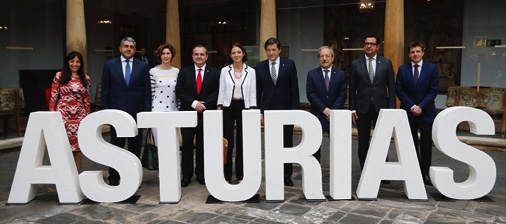
UNWTO: Use technology for more sustainable tourism management
As the World Tourism Organization (UNWTO) held its 2nd World Conference on Smart Destinations in the Spanish city of Oviedo (25-27 June 2018), Secretary-General Zurab Pololikashvili emphasized how new technologies can and should enable a more universal approach to sustainable tourism.
“Technology helps us to better manage our social, cultural and environmental impacts. And if well managed, tourism can act as an agent of positive change for more sustainable lifestyles, destinations, and consumption and production patterns”, said Mr. Pololikashvili opening the Conference.
This year’s event featured two days of seminars detailing destinations’ routes towards effective digitalization. It shone a spotlight on how destinations can use technological advances like big data and geo-localization to spur sustainable management of tourism.
The Conference provided concrete take-aways for participants and also fostered knowledge creation and exchange. It was preceded by the 1st Hackathon for Smart Destinations (23-24 June) and a research and development day (25 June), which brought startups and academics together to work on ways to bring smart, innovative and sustainable solutions to the sector. These events also highlighted that several forward-thinking governments, private sector entities, researchers and technology centres have already taken the lead in doing so.
The 2nd World Conference on Smart Destinations was organized by UNWTO, the Spanish Ministry of Industry, Trade and Tourism and the Government of Asturias, with the collaboration of Minube.
The World Tourism Organization (UNWTO) is the United Nations agency responsible for the promotion of responsible, sustainable and universally accessible tourism. It is the leading international organization in the field of tourism, which promotes tourism as a driver of economic growth, inclusive development and environmental sustainability and offers leadership and support to the sector in advancing knowledge and tourism policies worldwide. It serves as a global forum for tourism policy issues and a practical source of tourism knowledge. It encourages the implementation of the Global Code of Ethics for Tourism to maximize the contribution of tourism to socio-economic development, while minimizing its possible negative impacts, and is committed to promoting tourism as an instrument in achieving the United Nations Sustainable Development Goals (SDGs), geared towards eliminating poverty and fostering sustainable development and peace worldwide.
UNWTO generates market knowledge, promotes competitive and sustainable tourism policies and instruments, fosters tourism education and training, and works to make tourism an effective tool for development through technical assistance projects in over 100 countries around the world.
UNWTO’s membership includes 156 countries, 6 territories and over 500 affiliate members representing the private sector, educational institutions, tourism associations and local tourism authorities. Its headquarters are located in Madrid.
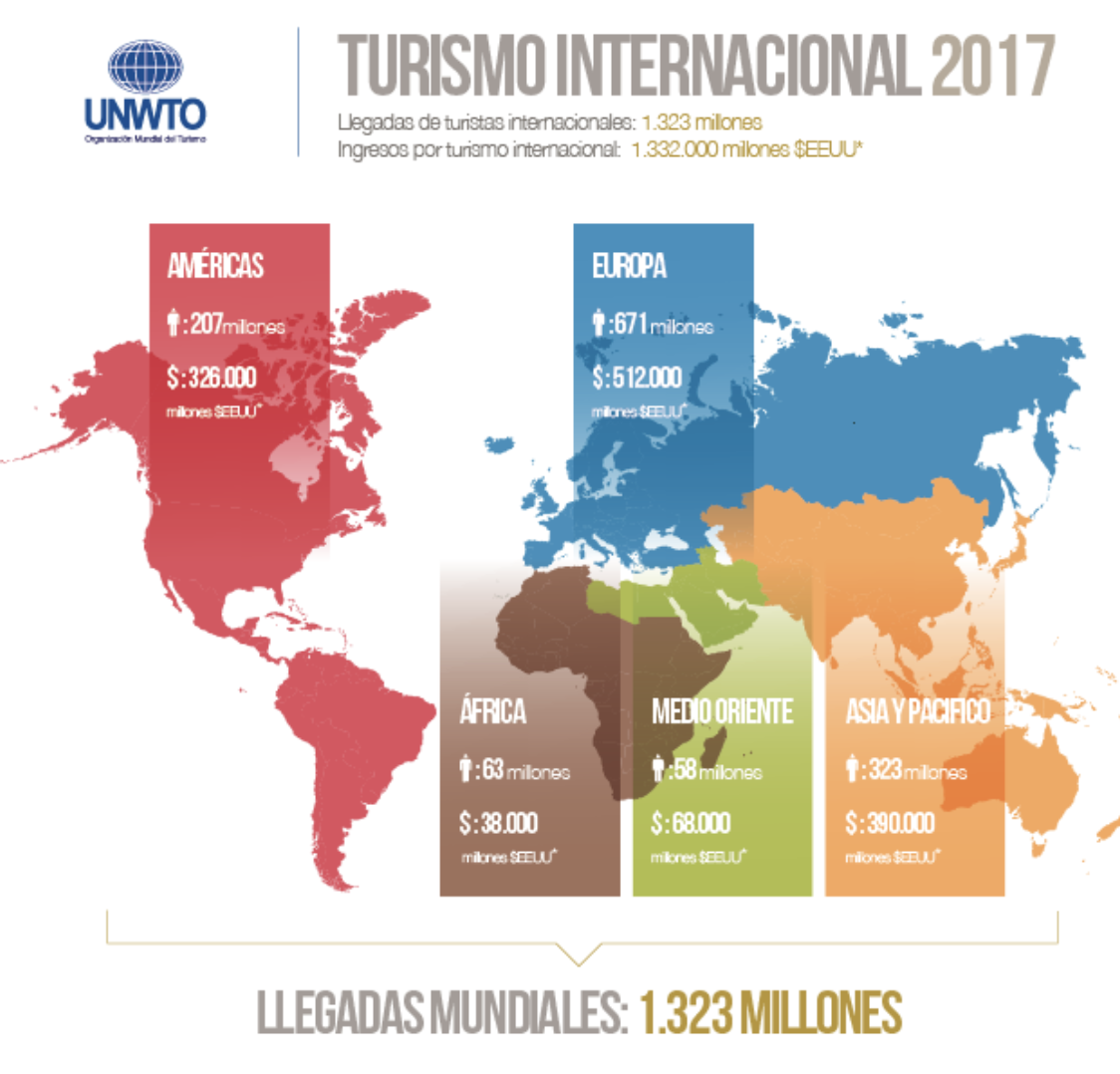
International Tourism exceeds expectations in the first months of 2018
Madrid, Spain, 26 June 2018 – International tourist arrivals grew 6% in the first four months of 2018, compared to the same period last year, not only continuing the strong 2017 trend, but exceeding UNWTO’s forecast for 2018.
Growth was led by Asia and the Pacific (+8%) and Europe (+7%). Africa (+6%), the Middle East (+4%) and the Americas (+3%) also recorded sound results. Earlier this year, UNWTO’s forecast for 2018 was between 4-5%.
“International tourism continues to show significant growth worldwide, and this translates into job creation in many economies. This growth reminds us of the need to increase our capacity to develop and manage tourism in a sustainable way, building smart destinations and making the most of technology and innovation”, said UNWTO Secretary-General, Zurab Pololikashvili.
Asia and Europe led growth at the start of 2018
From January to April 2018, international arrivals increased in all regions, led by Asia and the Pacific (+8%), with South-East Asia (+10%) and South Asia (+9%) driving results.
The world’s largest tourism region, Europe also performed strongly during this four-month period (+7%), pulled ahead by the destinations of Southern and Mediterranean Europe, and Western Europe (both +8%).
Growth in the Americas is estimated at 3%, with strongest results in South America (+8%). The Caribbean (-9%) is the only sub-region to experience a decrease in arrivals during this period, weighed down by some destinations still struggling with the aftermath of the hurricanes of August and September 2017.
The limited information coming from Africa and the Middle East points to 6% and 4% growth, respectively, confirming the rebound of Middle East destinations and the consolidation of the growth in Africa.
Confidence in global tourism remains strong according to the latest UNWTO Panel of Tourism Experts survey. The Panel’s outlook for the May-August period is one the most optimistic in a decade, led by the particularly upbeat sentiment in Africa, the Middle East and Europe. Experts’ evaluation of tourism performance in the first four months of 2018 was also robust, in line with the strong results recorded in many destinations around the world.
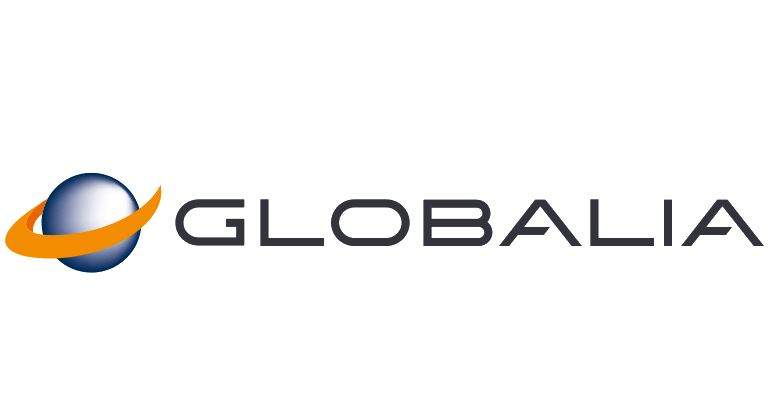
World Tourism Organization and Globalia announce the first and largest worldwide competition for tourism startups
This pioneering initiative for the tourism sector reaches out to 164 countries to find startups aiming to transform tourism.
Whether tech-based or non-technological, early-stage or more mature, any startup with innovative ideas capable of revolutionizing the way we travel and enjoy tourism is welcome to participate.
The tourism sector has taken a giant step into the future. The World Tourism Organization (UNWTO), in partnership with Globalia, the leading tourism group in Spain and Latin America, announced the launch of the 1st UNWTO Tourism Startup Competition. It is the world’s first and largest initiative devoted to identifying new companies that will lead the transformation of the tourism sector. In order to find the best projects, the call for competitors will be launched in 164 countries.
The objective of the programme is to select the best solutions and the most disruptive projects. The search will focus on finding pioneering proposals for implementation of emerging and disruptive technologies, as well as on startups based on new business models, such as the circular economy. In this regard, one of the pillars of this competition is to give visibility to projects that are committed to enhancing sustainability in tourism.
The startup search process is as ambitious as it is complex: identifying the best projects in all corners of the planet. For this, UNWTO and Globalia have enlisted the innovation consultancy firm Barrabés.biz, which boasts more than 20 years’ experience in the creation, connection and activation of entrepreneurship and innovation ecosystems.
To broaden the scope of the competition and to facilitate the registration of interested startups, the programme will be implemented through the digital platform YouNoodle, a leading Silicon Valley company in the startup evaluation space at the global level.
“Innovation and tourism investment are not ends in themselves; they are means to develop better tourism products, to improve the governance of tourism and to make the most of the proven sustainability of tourism, by creating jobs and generating opportunities,” said UNWTO Secretary-General Zurab Pololikashvili.
For his part, Globalia CEO Javier Hidalgo confirmed his company’s support for this new initiative emphasizing that “as a global tourism group, we want to offer the winners the opportunity to work with us and transform the sector together”.
Who can participate?
To participate in this global competition, startups must present business models that are related to at least one of four main areas:
The future of travel
The tourism experience
Environmental impact
Community development
Those interested in participating can find more information and submit their applications through the programme’s website at www.tourismstartups.org. Applications are open from 26 June to 3 September 2018. The projects will be evaluated according to five criteria: uniqueness and viability of the solution, potential impact, business model, scalability and team profile. A jury will evaluate the entries and select the best projects as semi-finalists to be announced in September 2018.
The winners of this competition will have the opportunity to be part of the leading companies in the tourism sector.
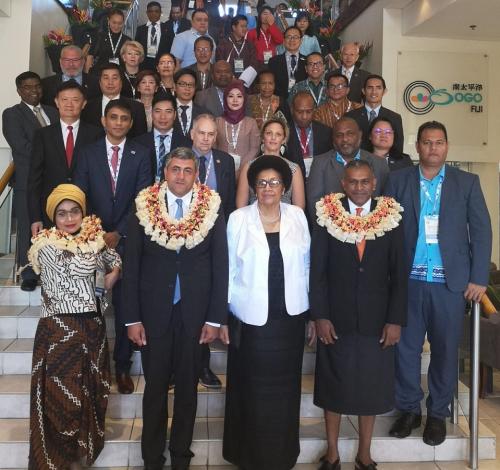
UNWTO: A conversation on climate change
Madrid, Spain, 20 June 2018 – The Secretary-General of the World Tourism Organization (UNWTO), Zurab Pololikashvili, called for the tourism sector to take more action to combat climate change and biodiversity loss during the 30th joint meeting of its Commissions for South Asia and Asia-Pacific in Fiji (18-20 June 2018).
Adding his voice to that of the host country, Mr. Pololikashvili advocated for stronger partnerships and incentives for governments, businesses and crucially tourists themselves to make a difference in climate action efforts. He also made clear that sound policies must be built upon accurate evidence, requiring the tourism sector to better measure its impact on sustainability – while acknowledging progress has been made in this regard, including UNWTO’s development of a statistical framework to measure sustainable tourism.
The remarks were made as part of a regional seminar on how tourism impacts upon sustainable development efforts in the region and globally, held as part of the meeting in the Fijian city of Nadi. The seminar featured deep dialogue on how tourism policies, partnerships and investments can tackle climate change and biodiversity loss.
This was the first Joint Commission meeting held in a Pacific island nation. The meeting and seminar highlighted the need for developing island countries to collaborate on actionable policies, with measurable results, to address climate change and biodiversity protection within the tourism sector. UNWTO also pledged to raise further awareness of climate change’s impacts and effects on tourism through capacity building and educational opportunities.
“This is the perfect place to have this conversation on climate change, as Fiji continues to lead the efforts on climate resilience and sustainability not only within the country but in the entire region. This was also demonstrated during the Global Climate Summit COP 23, when the Government of Fiji committed to the development of sustainable tourism as a tool to tackle climate change”, said Mr. Pololikashvili.
